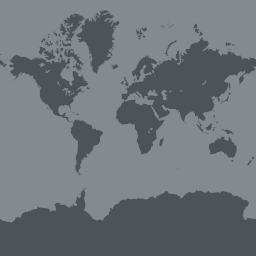The Moscow Digital Herbarium is the largest biodiversity database in Russia and at present the largest Russian dataset published in GBIF, but only 31% of the records are georeferenced. The main objective of this project is to increase the amount of geodata associated with these records.
After completion of the Noah's Ark megagrant (2015–2018) that aimed to support the Moscow University biological collections, we faced some problems with fundings to promote further digitization activities. The project is aimed to improve georeferencing of European Russia holdings already imaged for the Moscow Digital Herbarium.
As of 30 December 2018, we had imaged and published online 384,201 herbarium specimens from European Russia, of which 121,690 (31.6%) were georeferenced. A commercial partner will capture text from 33,800 labels—an essential step for structuring the dataset prior to georeferencing performed by four herbarium staff members. We expect that the project will allow georeferencing of an additional 54,450 specimens from European Russia. Results will be added to our database and synchronized weekly in our GBIF dataset.
Project Progress
The project has georeferenced 68,166 speciemens completing their target of 54,450 specimens. From March to August these specimens were collected from spreadsheets and by new georeferences done by the herbarium staff members, so as of Septemeber 2019, Moscow University Herbarium (MW) holds 189,856 georeferenced specimens from the focused area. Many georeferences were identified automatically using the ISTRA system due to permanent adding of new label transcriptions. The current rate pf georeferencing in Moscow University Herbarium is now 48.5% (48.6% for European Russia and 47.6% for Northern Caucasus) whereas the rate of lbael capturing is 50.2% (52.3% for European Russia and 38.0% for Northern Caucasus). The results were published on the projects own database with Moscow University Herbarium GBIF-datasets.
Dr. A.P. Seregin gave an invited lecture entitled "Why publish data thorugh GBIF and other open repositories? Moscow Digital Herbarium experience: benefits for the scientific community and for individual researchers" in Russian at the seminar "Diversity of soil animals in Russia: publication and effective use of source data" in Moscow, August 2019. He also gave an invited lecture "Moscow Digital Herbarium: aglobal approach through the regional actions" in English at the congress' Symposium "Herberia: still relevant i nthe 21st century?" in Padova, September 2019.



